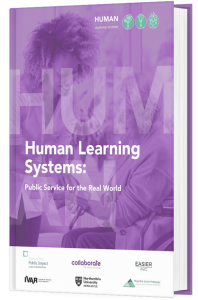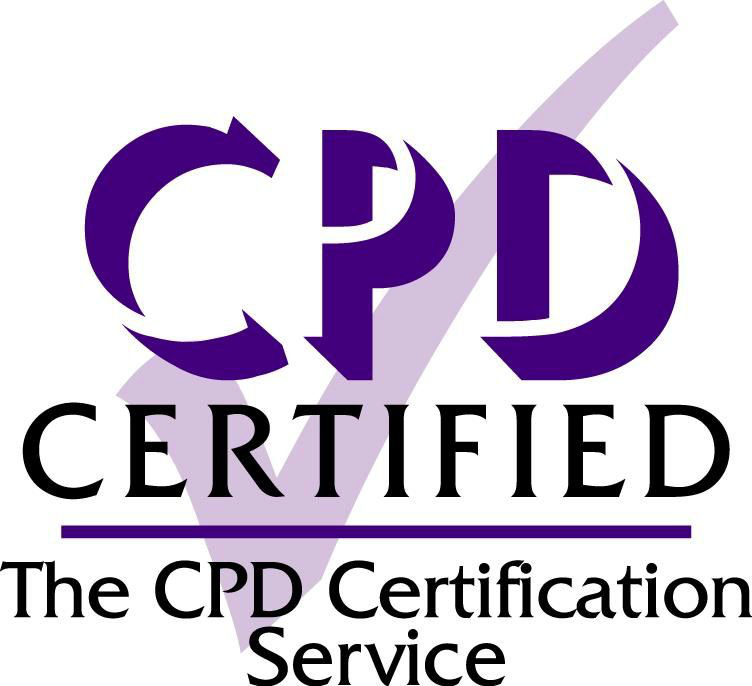
‘Great leaders find ways to connect with their people and help them fulfil their potential.’
Steven J. Stowell
Leadership is everybody’s job
Leadership is seen as vital to realising aspirations, achieving high-performing teams and creating positive cultures of care. The challenge, however, lies in how we can practice leadership in ways that are authentic and bring out our own and other people’s potential. Just as with geese flying in V formation, who share the leading position at the front and thus increase their flock’s flight range by over 70%, leadership isn’t just about the people in the top positions. Everyone stands to benefit when we create opportunities for distributed leadership and develop each person’s leadership potential.There is increasing recognition that successful leaders create organisational cultures that are collaborative, psychologically safe and driven by a shared sense of values and purpose. Harnessing the collective creative powers and intellectual insight of everyone in an organisation therefore requires leaders who possess a wide range of interpersonal and empathic skills, who are consummate relationship-builders and nurture a leadership mindset in everyone within the organisation.
Leading from the heart
With its strong emphasis on more equal relationships, learning cultures, well-being and ethical purpose, social pedagogy has important implications for leadership across all levels of an organisation. Its concepts and principles not only apply to the people you support in practice but are equally relevant for how you work within your team and collaborate with other professionals. For the development of a social pedagogical culture within your service, it is vital that you and other leaders (such as senior managers, team leaders and other key people) know how to encourage teams to navigate complexity and make situated judgments that reflect your collective values and purpose.
 As a complexity-informed paradigm receiving much attention in public service debates at the moment, Human Learning Systems offers a paradigm shift away from New Public Management with its relentless and dehumanising focus on markets, measures and managers. Instead of NPM’s imaginary world of competition, outsourcing, service fragmentation and micro-management leading to predictable outcomes and better services, HLS shows that public service happens in the real world, responding to the complexities of people’s real lives to help them flourish, learning in dialogue with the people and communities we serve, and working relationally to create healthier collaborative local systems. There are increasingly more examples of this public service revolution unfolding across the UK and beyond, many of which are captured in the free e-book Human Learning Systems: Public Service for the Real World’, in which we have co-authored chapters exploring the links with social pedagogy, the implications for values-based recruitment and shifting the learning and development paradigm in organisations.
As a complexity-informed paradigm receiving much attention in public service debates at the moment, Human Learning Systems offers a paradigm shift away from New Public Management with its relentless and dehumanising focus on markets, measures and managers. Instead of NPM’s imaginary world of competition, outsourcing, service fragmentation and micro-management leading to predictable outcomes and better services, HLS shows that public service happens in the real world, responding to the complexities of people’s real lives to help them flourish, learning in dialogue with the people and communities we serve, and working relationally to create healthier collaborative local systems. There are increasingly more examples of this public service revolution unfolding across the UK and beyond, many of which are captured in the free e-book Human Learning Systems: Public Service for the Real World’, in which we have co-authored chapters exploring the links with social pedagogy, the implications for values-based recruitment and shifting the learning and development paradigm in organisations.
Connecting learning with your practice
This intensive learning programme provides an excellent opportunity for you as a leader to explore how key principles in Social Pedagogy and Human Learning Systems translate into leadership, what this means for you, your team, the wider organisation and, most importantly, how relational leadership can benefit the individuals, families or groups supported by your organisation.
In facilitating the course, we will draw on a variety of learning methods that make relational leadership come to life – through experiential learning activities, group discussions, theoretical inputs, reflection and action planning on how you can develop your own leadership.
Over the course of 9 3hr sessions, we will build a peer learning community in which participants increasingly take on greater responsibility for supporting each other in the ongoing process of applying your learning to your respective role as a leader in your specific practice context. Why is this a powerful way to achieve practice improvement? Because converting learning experiences into meaningful behaviour change relies on three factors:
- CAPABILITY: Acquiring new skills and insights into relevant leadership, learning and systems change theory and reflection methods
- MOTIVATION: Being determined to create positive systemic change, finding your unique leadership potential to build meaningful relationships and develop a purpose-driven organisational culture
- OPPORTUNITY: Finding ways to apply learning in practice, creating the space for self-reflection within the peer learning community, and identifying opportunities to nurture other people’s leadership mindset
We expect participants to commit to taking action in between each session, so that you can practice being a relational leader both in your professional and personal life.
To ensure that all course participants have a basic understanding of Social Pedagogy prior to this course, we will provide you in advance with reading materials and encourage you to register for our Massive Open Online Course in Social Pedagogy across Europe (available on Coursera).
Learning aims
By connecting social pedagogical concepts and principles to your leadership practice, we aim to:
- provide you with an enduring understanding of:
- Social Pedagogy as an ethical orientation based on recognition that human beings are intrinsically rich, have unique value and potential
- Human Learning Systems as a powerful alternative to New Public Management that can help us create healthier systems
- How to convey the principles underpinning Social Pedagogy and Human Learning Systems into everyday interactions through your relational leadership
- How you can create collaborative learning cultures and psychological safety within your team and across systems
- ensure you know and are able to apply:
- Relevant social pedagogical theories and principles for everyday leadership practice
- How you can initiate and sustain change within a complex practice environment
- make you further familiar with:
- The role of communication and empathic listening in relational leadership
- Ideas and activities for future team development, supervision and your personal leadership style development
Themes
- Core concepts in Social Pedagogy and their implications for leadership
- Central tenets of Human Learning Systems and its potential to revolutionise public service
- Introduction to and perspectives on relational leadership
- Creating learning environments in organisations
- Haltung and ethics as foundational for relationship-centred practice
- The pedagogy of empathic listening, valuing difference and recognition for leaders
- Nurturing intrinsic motivation and shared purpose
- Sustaining a social pedagogical culture by nurturing relational leadership mindsets within your team
Each 3-hr session is designed to connect capability, motivation and opportunity by giving you time to explore an area of your practice that you’re determined to change, plan a micro-intervention – a small thing you’ll do to develop your relational leadership – and commit to your peers that you’ll come back the following session having tried this out.
Who we are
The course is facilitated by Alexandra Priver, Charlotte Firing and Gabriel Eichsteller from ThemPra. We’re all internationally experienced practitioners in social pedagogical settings and have longstanding facilitation and leadership expertise. We’ve led on ThemPra’s pioneering projects in England and Scotland with a broad range of social care organisations and initiated several EU-funded projects exploring social pedagogy in Danish care settings and across Europe. We’re also co-delivering the MA in Social Pedagogy Leadership in partnership with the University of Central Lancashire. As part of the HLS Collaborative we’ve contributed to the recent e-book Human Learning Systems: Public Service for the Real World and facilitate a peer learning community on HLS and Social Pedagogy. This learning programme draws on these collective experiences in ways that connect with your practice expertise, and we see our role as equal partners in your learning process.
Course dates
We’ll be announcing future course dates soon. Please complete the below enquiry form if you’d like to be amongst the first people to whom we offer a place, without any obligations.
Costs
The cost per participant is £475 (ex VAT). We offer a 5% discount per place to organisations purchasing 5+ places and a 10% discount per place for 10+ places. Payment can be made by bank transfer or credit card and must be received at least 14 days prior to the start date. We’re happy to add any purchase order details to the invoice.
Enquiry form
If you’d like to join this course in the future, please complete the below form and we’ll keep you posted.
Professional standards
Post-qualifying standards: Knowledge and Skills Statements:
Child and Family Practitioners: Relationships and effective direct work | Communication | Analysis, decision-making, planning and review | The role of supervision | Organisational context
Child and Family Practice Supervisors: Promote and govern excellent practice | Developing excellent practitioners | Shaping and influencing the practice system | Effective use of power and authority | Confident analysis and decision-making | Purposeful and effective social work | Emotionally intelligent practice supervision | Performance management and improvement
Child and Family Practice Leaders: Lead and govern excellent practice | Creating a context for excellent practice | Designing a system to support effective practice | Developing excellent practitioners | Support effective decision-making | Quality assurance and improvement
Social workers in adult services: Person-centred practice | Supervision, critical analysis and reflection | Organisational context | Professional ethics and leadership
Social work practice supervisors in adult social care: Values and ethics | Influencing and governing practice excellence within the organisation and community | Developing confident and capable social workers | Assuring good social work practice and development | Promoting and supporting critical analysis and decision-making | Relationship-based practice supervision | Effective use of power and authority as a practice supervisor | Performance management and improvement
Care Quality Commission – Key lines of enquiry:
Effective | Caring | Responsive | Well-led
Professional Capabilities Framework for Social Work in England:
Professionalism | Values and ethics | Diversity and equality | Rights, justice and economic wellbeing | Knowledge | Critical reflection and analysis | Intervention and skills | Context and organisations | Professional leadership
Royal College of Occupational Therapists – Professional Standards:
Understanding relationship | Service users | Develop intervention | Evaluate impact | Demonstrate quality | Collaborative | Communication | Support development
Make the case to your manager
If you’re not sure how best to argue the case for being on this course, we can help you. Here’s a template email you can adapt when contacting your manager about this course.
Further questions?
Please get in touch with us via email if you would like to know more about this course or any of our other learning activities.


